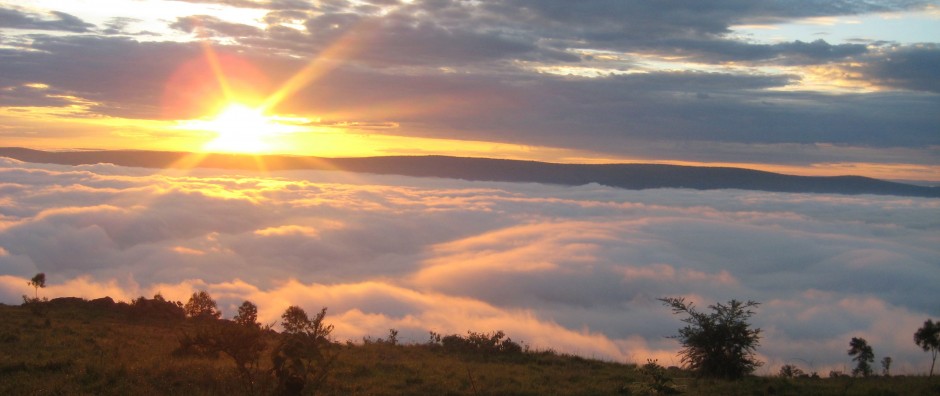My first week or so in Ngara was spent in the rain, but during that period I was assured that the rain would stop for a while. Then, around a week ago, I was told that the rainy season would be starting again soon. Not only should I be prepared for it to rain every day, but I should also do things like stock up on charcoal, because presumably it will be wet from here on out. These rains are supposed to last until around May. So, basically, it rains consistently for more than half the year here. I expect it will not actually rain every day, but it sure has started to rain a lot, and I am from Seattle so I know what regular rain is all about it. Ngara rain is far from regular rain, and as a result, the way people react to it is very different than how we would react to rain in the Northwest.
As I sit here writing it has begun to rain for third time today. Not one of them would be easily categorized as a drizzle. As they say, when it rains, it pours. That’s not entirely accurate, but I’d say that for every rain cycle there are at least 10 minutes of pouring rain, and the rain before and after that is still comes down pretty hard. I don’t really know many inches of rain are produced, but during one of the first rainstorms I experienced here I put out a bucket and it accumulated nearly two inches in an hour and a half.
On Friday it rained almost all day. It was raining when I woke up, and stopped (I might have lied about the drizzle), well, actually it drizzled as I biked to school. A minute after I arrived it started to rain pretty hard again, and it proceeded to rain for the rest of the morning, with some small gaps here and there. It got nice around noon, and there was sun for an hour. Then, it began to rain again. Right around the time school ended, it began to pour. As the teacher on duty, I was in the process of dismissing all the students at the time, and so the Second Master and I dismissed them and literally ran into his office, where we waited out 30 minutes of downpour. He told me that we were lucky to be in hilly Ngara, because in most places in Tanzania rain means flooding. The rain stopped – well, drizzled – long enough for me to get home in only a slight state of wetness, and then it began to pour again. This rain cycle proceeded for the rest of the day until I went to bed. Around 1 am I woke up to the biggest downpour I have ever seen in my life. Walking outside – which I was quite temped to do – would have literally been like walking into a waterfall. You would be soaked through in a second. The next morning there were mushrooms growing from two of the leaks in our roof.
Needless to say, Tanzanians in Ngara have adopted a number of interesting habits as a result of all this rain. When it starts to rain (I am not counting light rain here), Tanzanians literally sprint to shelter and wait out the rainfall. I have never seen Tanzanians move so fast. This make sense, when you consider that you really only have to be out in this rain for a little bit to end up completely wet. Rain actually results in canceled classes here. If it is raining too hard the teachers will literally not allow you to go to teach your class. You would simply arrive too wet. For some reason, umbrellas are popular here, but since the rain rarely comes straight down they are quite ineffective. Nevertheless, the Tanzanian middle class carries and uses umbrellas in all but the heaviest rain, when I think the umbrella would collapse in on itself. Students use their exercise books (notebooks) as head protection. I am not sure what happens to all their notes, but at least their heads don’t get wet.
Anyway, I expect that I will have more to say about the social consequences of rain at a later date, since it figures to be a large part of my existence here. For now, I will simply say that farmers love rain, unless it is too strong, because then it can be bad for their plants. As for me, I don’t mind the rain, unless it’s pouring and I have to go somewhere. We’ll see how this works out.
